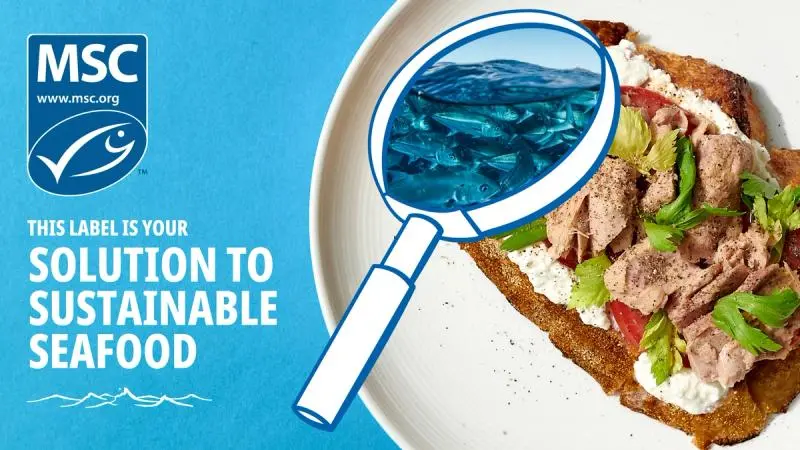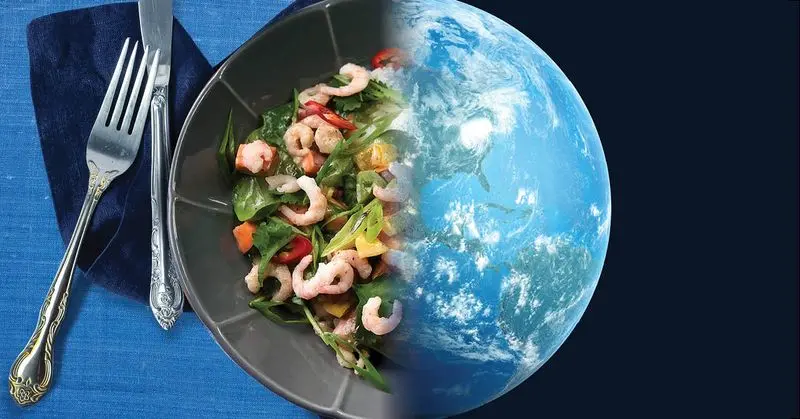Your Seafood Choices May Impact Our Global Food Systems
This blog title may sound a little dramatic, but it is true, and this grim fact deserves more attention.
Through my partnership with the Marine Stewardship Council (MSC), I have learned so much about how the seafood we enjoy makes its way to our dinner tables, and its impact on the environment and our marine ecosystems. In the past, I honestly wouldn’t spend much time looking at the packaging of fish I was buying. We eat fish often because it is nutrient dense, and beyond that, I didn’t think is mattered too much which salmon filet I chose. Boy, was I wrong.
Now, I look for the MSC blue fish label while shopping for seafood.

The MSC blue fish label makes it easy for consumers to choose products that come directly from sustainably managed MSC certified fisheries—meaning your purchase supports the fishermen bringing us sustainable options!
You also send a message to other fisheries and seafood brands that they should be using sustainable fishing and sourcing practices. Simply look for the blue fish label on your canned, pouched, fresh, frozen, and chilled fish items at your local grocery store.
Here’s why it matters:
Seafood can be an important source of essential nutrients in the diet, including protein, Omega-3 fats, vitamin D, and various other vitamins and minerals. It is a quick-cooking protein that is versatile in cooking methods and can be paired with a wide variety of seasonings, sauces, and condiments—making it an accessible option for home cooks of all skill levels.
Fish is also an essential protein source for individuals who follow a pescatarian diet, and to the over 3 billion people globally who depend on seafood as their main protein source (Source: WWF). Fish is an essential part of our food system and we can’t afford to ignore the impact overfishing can have on food security, nutrition, and environmental sustainability.
For all these reasons, and more, we should do everything we can to support the well-being and longevity of our oceans to ensure this essential food source is available for decades to come.

MSC is the largest independent seafood sustainability certification program in the world, and the MSC blue fish label program rewards fisheries, retailers, and brands committed to making sustainable seafood more accessible around the world. Thankfully, MSC has done the hard work—alongside scientists, fishers, governments, and policymakers—to create a unified global sustainable fishing standard that shoppers (like you and me!) can trust as a way to choose certified sustainable, wild-caught seafood.
Without attention to fishing practices, we could threaten entire species with an impact that could be seen down the food chain and across bodies of water worldwide. The task is simple- choose MSC blue fish label products to support the mission of eliminating overfishing and other fishing practices that could harm the environment and ecosystem.
